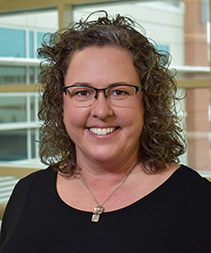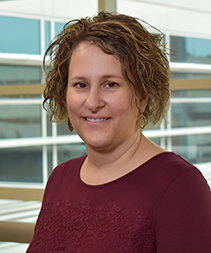Cancer
Resources
Support for Caregivers of Cancer Patients
If you are helping your family member or friend through cancer treatment, you are a caregiver. This may mean helping with daily activities such as going to the doctor or making meals. It could also mean coordinating services and care. Or it may be giving emotional and spiritual support.
The tips below are for most cancer caregivers. But there are also more details available for caregivers dealing with advanced cancer, caregiving after treatment ends, for parents with a child with cancer, and for teens with a family member with cancer.
Support for Family Caregivers
The Nassif Community Cancer Center makes it a priority to provide support to the family caregivers of our patients. Our programs and support services are available, not only to our patients, but also to their family caregivers.
Taking care of a loved one can be extremely rewarding. However, stress can begin to add up for you as a caregiver. You may put your own wants and needs aside to look after your loved one. It is important to realize that caring for yourself is a part of caring for your loved one and can actually allow you to be a better caregiver.
Caring for the Caregiver
When someone is diagnosed with cancer, family members and other loved ones often take on various caregiving roles: going to appointments, helping with day-to-day tasks, helping coordinate care/services and providing emotional support. Research shows family members provide 75-80% of care to patients. However, over 50% of caregivers report their health and quality of life is diminished.
Taking responsibility for your own care is not selfish. It is a part of your job as a caregiver to take care of yourself too. Do not hold yourself to an unrealistic standard of being able to “do it all.” Recognize the good you do and remember what you need to renew yourself as well, so that you may continue as a source of compassionate care for your loved one.
Self-care practices to maintain your health:
- Learn and use stress reduction techniques
- Get proper rest and nutrition
- Exercise regularly
- Take time away
- Seek and accept the support of others
- Seek supportive counseling or talk to a trusted friend
Cancer Affects Everyone, Including Caregivers.
Cancer doesn’t only affect the person with cancer; it affects the lives of the people who surround them as well. Whether you’re a caregiver to your child or partner, a family member or a loved one, we know you have questions and concerns. Communicating with your partner about how cancer has affected you can be difficult. Even strong relationships can become strained under the pressure of managing a complex illness. Taking steps to improve your communication skills can help you to feel more supported and understood.
A spouse, partner or a close loved one can be a primary source of support to a cancer survivor. However, if communication begins to break down, it can be stressful and result in low levels of support for both. While the cancer journey can be emotionally challenging for survivors, it can also be hard on loved ones. In some cases, a caregiver may experience more emotional distress than the one with cancer.
Both partners may have strong emotions such as fear, anger and guilt. Stress is also common. A decline in the physical or emotional status of either may create a “cycle of distress” because one person’s distress also affects the other. High levels of emotional distress can strain the relationship.
Good communication may be the most effective strategy for breaking this cycle. It may also improve the quality of life for both. Click on this link to learn more about ways to improve your communication and lower your distress.
Your Role as a Caregiver
The ripples of a cancer diagnosis extend to spouses, partners, siblings, children and friends. Many of these family members will find they now need to take on the role of caregiver—something they have never done before.
Your main job will be to support and encourage your loved one as they learn about their cancer and make decisions about and then start their cancer treatments. What will this involve? Not all caregivers do all of the same things, but a survey of 66 caregivers who are part of our Cancer Experience Registry® found:
Provided Emotional Support
Went With Their Loved One To Medical Appointments
Helped With Decision-Making
Coordinated Medical Care
Provided Transportation
Helped Manage Finances
Becoming a caregiver may seem scary or overwhelming. Know that you are not alone: The Caregiver Action Network estimates that during any given year more than 65 million people in the U.S. spend about 20 hours each week caring for an ill, disabled or aged family member or friend.
There is a growing realization that caregivers need support, and there are programs and services that can help you as you care for your loved one. In fact, many caregivers decide to meet regularly with a social worker or join a family or caregiver support group to make sure they will have the time to talk about their own fears or worries. Support groups are also a good place to get information and advice about caregiving and cancer.
Remember: Sometimes the best thing you can do for your loved one is to just sit quietly together — be present, in the moment, sharing time
For the complete article and resources, click here.
Join an Online Support Group
Online support groups have increased in usage by patients and caregivers alike. They can be an especially useful source of support for busy caregivers by allowing you to get the support you need from connecting with other caregivers but allowing you to do it onyour own time schedule. Registration is open for our online support groups through CancerCare. (info@cancercare.org). Groups take place using a password-protected message board format and are led by professional oncology social workers who offer support and guidance.
A sample of our groups include:
- For Caregivers and Loved Ones
- Brain Tumor Caregiver Support Group
- Caregiver Support Group – Spouses/Partners
- LGBT Caregiver Support Group
- Young Adult Caregiver Support Group
Caregiver Corner
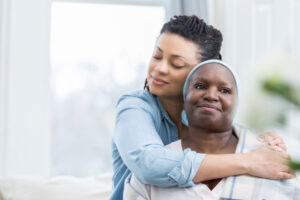
What you Should Know as a Cancer Caregiver
Get help for yourself Get help for your loved one Practice self-care To read the rest of the article click here.
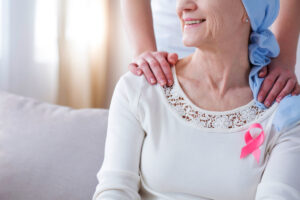
Reducing the Impacts of Stress On Working Cancer Caregivers
It’s difficult enough when a loved one is diagnosed with cancer, but employed spouses of those who receive the diagnosis also are confronted with an array of practical problems. It’s

Preventing Burnout as a Cancer Caregiver
by Margaretta Page, RN, MS Being a cancer caregiver can be a daunting task. Family caregivers are expected to step up and become extensions of the healthcare team, often without
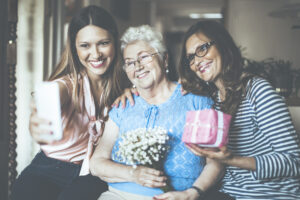
10 Tips for Caregiving During the Holidays
Feeling stressed? Reset your expectations and enjoy the little moments. Click here for 10 Caregiving tips!
Meet our Team
External Resources
We have gathered the best caregiver resources in one place.
-
Coping Checklist for Caregivers
Caring for someone with cancer, taking on new responsibilities, and worrying about the future can be exhausting at the very least – and it can quickly lead to burnout. When you’re busy caring for the person with cancer, who’s taking care of you? Check out these lists from the American Cancer Society to identify strengths and weaknesses you can build on or improve.
-
Family Life
As any person with cancer knows, a cancer diagnosis also affects family members and friends. Sometimes, the complex feelings and lifestyle changes caused by cancer and its treatment become as overwhelming for others in your life as they are for you. Understanding the potential changes in the way you relate to specific family members and friends may help you take steps to foster healthy, mutually supportive relationships during this challenging time.
-
Caregiving With Confidence
Being a Parent While Caring for One. Click here to read the artlicle about taking steps to delegate responsibilities and strike a balance
-
Making the Adjustment: From Giving Care to Accepting Care
For those who are caring for someone else when diagnosed with cancer, the transition from being someone else’s caregiver to being the one needing care is hard and brings its own set of stressors.
-
Cancer Caregiver Websites
American Cancer Society
National Cancer Institute
The National Comprehensive Cancer Network
Lance Armstrong Foundation
-
General Caregiver Resources
Family Caregiver Alliance
National Allegiance for Caregiving
National Family Caregivers Association
Well Spouse Association





